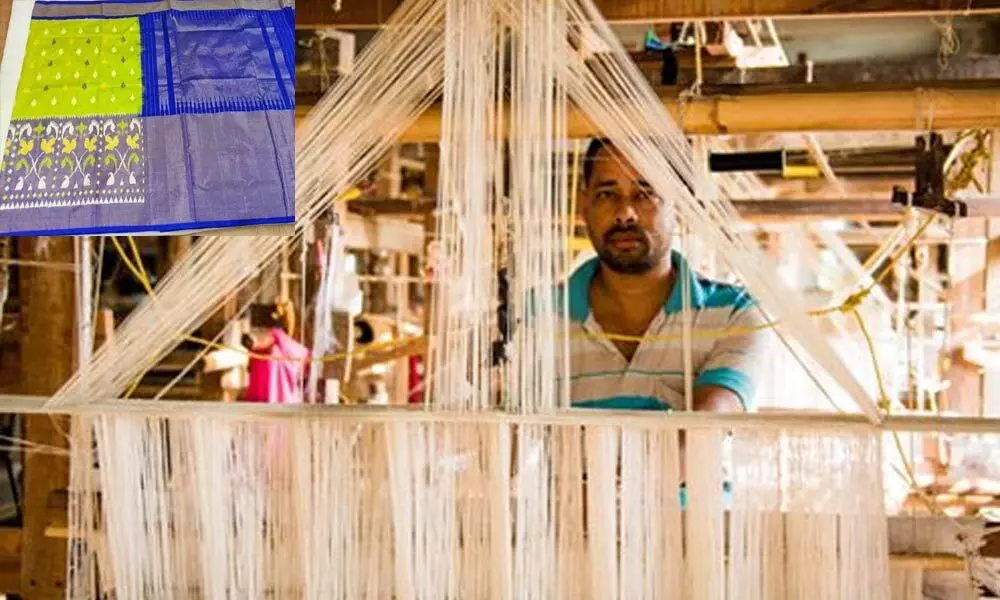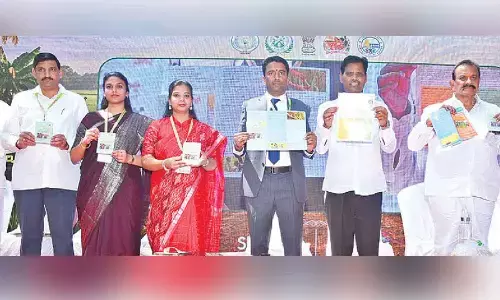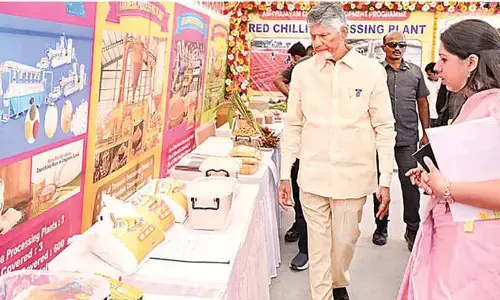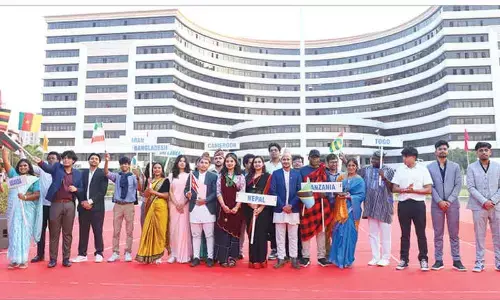Handloom Act violators go scot-free
 Handloom Act violators go scot-free
Handloom Act violators go scot-freeAccording to the recent RTI response from the Director of Handlooms and Textiles and Apparel Export Parks (TS) to the information on total number of FIRs booked under Section 8 of Handloom (Reservation of Articles for Production) Act, 1985, between 2004-05 and 2019-20 only 28 cases were booked
Hyderabad: The next time you visit a shopping mall, if the fabric being claimed by the showroom is from handloom, it will most likely be the product of a powerloom, as latter more than doubles the profit margin. This is being cited as one of the reasons for misery to the handloom weavers, across both the Telugu States.
According to the recent RTI response from the Director of Handlooms and Textiles and Apparel Export Parks (TS) to the information on total number of FIR's booked under Section 8 of Handloom (Reservation of Articles for Production Act), 1985, between 2004-05 and 2019-20 only 28 cases were booked. 25 in Nalgonda and 3 in Warangal, from which 20 were disposed, while 7 remain pending and 9 were served penalties. While a similar petition is pending with the Andhra Pradesh officials. "Among these 8 are cases look suspicious, as five of them landed in Lok Adalath (which is against norms) and three cases were withdrawn. This is less than 2 cases per each year and reflects the working style of official machinery," said, Ganji Srinivas Rao, an activist.
According to him, the Telugu States have failed in implementing The Handlooms (Reservation of Articles for Production) Act by 'searching and seizing' the material to 'filing FIRs' against accused who violate the provisions. As per the Handlooms Act, 1985, 22 types of clothes were permitted 'only to be produced on handlooms', later the list was brought to 11 following the Ministry of Textiles Order in 2008, which now included 1.Saree, 2.Dhoti, 3 (A) Towel & Gamcha 3 (B) Angavastram, 4.Lungi, 5.Khes, Bedsheet, Bedcover, Counterpane, Furnishing (including Tapestry, Upholstery, 6.Jamakkalam Durry or Durret 7.Dress Material 8.Barrack Blankets and Kambal or Kamblies 9.Shawl, Lol, Muffler, Panckhi 10.Woollen Tweed, 11. Chaddar,Mekhala or Phanek. "Most of these are available in markets which are products of powerlooms and sold by claiming handloom products. There is a huge profit margin for retailers if it is from powerloom," he added.
Meanwhile, a video of weavers from Dubbaka, in Siddipet district has gone viral amongst the Padmashali (weavers community). The weavers of the cooperative Dubbaka Cheneta Sahakara Sangham can be seen sitting with piles of material. The representative holds a big size bath towel and explains that the retail price of it is Rs 225, but the wholesale price is Rs 150. "For the past two-three months some 15,000 towels due to corona have piled up and we are unable to pay wages to weavers. Overall 20 lakh towels stock is piled up at handloom stores all over the State. We request you to rescue the weaver from destitution," says the Sanghams representative, standing in the middle of the weavers.
While expressing apprehensions that more and more traditional weavers would leave the profession, Telangana Padmashali Aikya Vedika has directly blamed the recent suicides near Sircilla to the State government's apathetic attitude. "KTR who claims to be supportive of the handloom weavers should resolve the issue, as stocks have piled up and they are unable to sell. Government should buy the stocks from weavers before resorting to taking their lives," said M Laxmaiah Neta, State president of Vedika.










